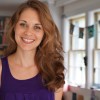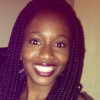 Annie Robinson (52 Posts)
Annie Robinson (52 Posts)Curator of Inside Stories and in-Training Staff Member
Columbia University
Annie Robinson completed a Master of Science in Narrative Medicine at Columbia University in 2014. She previously studied the healing power of stories as an undergraduate at NYU’s Gallatin School of Individualized Study.
Annie works as Narrative Coaching Specialist with Eating Disorder Recovery Specialists, helping individuals in the early stages of eating disorder recovery through mindfulness, meditation, yoga, and narrative practices. She is also the Program Officer at Health Story Collaborative, a non-profit that creates forums for individuals to tell their stories of personal health challenges, and curates another oral narratives projects called On the Road to Recovered: Voices from the Eating Disorder Recovery Community.
Annie is a coordinator and full-spectrum doula for The Doula Project in New York City, providing compassionate care for women during experiences of abortion, miscarriage, and fetal loss.
As a yoga teacher, writer, educator, and co-founder of NYC-based wellness community Pause, Breathe, and Connect, Annie shares her passion for integrative approaches to wellbeing. She is dedicated to creating spaces for people to explore the healing potential of interweaving of stories, spirituality, and somatic experience.
Inside Stories
Inside Stories is an oral narratives project which invites medical students to share their experiences in medical school in the form of brief podcasts published and archived on in-Training. The project aims to provide a means of personal healing, self-realization and empowerment through the sharing and receiving of personal stories, as well as to cultivate community among students in the often isolating medical school environment. The title Inside Stories reflects the project's mission to encourage students to go inside themselves and bring forth things that often go unspoken. It also represents the inside look listeners are granted into the sometimes private, challenging and confusing experiences students may have.
Made possible in part by a grant from the Arnold P. Gold Foundation and FJC.


How can doctors-in-training manage unanticipated challenges that arise during third year? Cori, a third-year medical student in New York, discusses the effects of constantly rotating through communities during third year. She shares how personal relationships, and the support of a fellow medical student, help ground her.
Medicine is difficult. It’s not that the road starts years in advance of medical school, taking difficult premedical courses, volunteering at hospitals or emergency services. It’s not the notorious competition and stress of simply being accepted to training. It’s not the life-consuming monster of training itself.
Editor’s note: This article was originally published on the blog The Arts & Humanities in the 21st Century Workplace by guest writer Jakub Kaczmarzyk. I see a unique side of people: the tops of their heads. I can spot gray hairs, roots and baldness at a glance. Faces, however, often escape me. At 6-foot-3, it’s hard to always see them. Where does that leave me? Out of touch. We are inherently different people, seeing from different perspectives and facing different …
As medical students and soon-to-be future physicians, we are taught to be hopeful when it comes to our patients. We smile; we comfort. We tell patients to put their trust in us because we believe we can cure them. We not only heal with our hands, but also with our words—reassuring when there is doubt, bearing a beacon of light when there is darkness. But what happens when that hope fails to illuminate, and our …
To the man with flowers that I met on my way out of the ICU: You came up to me and told me how grateful you were to all of the doctors in this place, for how well they treated you and your wife. You were holding bright red, maybe pink and yellow flowers with gold ribbon in clear wrap. You had grey hair and a kind smile. I said something like, “That’s so wonderful, …
How can doctors-in-training utilize creative expression to cope with and explore the challenging process of becoming a doctor? Leah, a second-year medical student, shares two poems she wrote. In the first she addresses the struggles faced during her first year, and in the second she reflects on the experience of personal healing.
With my Fisher-Price stethoscope drooping to my knees, I opened up my first practice as a young boy, working out of my family’s kitchen, my hours fluctuating with my nap schedule. I was a dragon-seeker bent on improbable rescues, and as I would fiddle with my tools, I would imagine a future where patients returned to my office full of life and gratitude. What I did not count on as a five-year-old—or even as a …
How can doctors-in-training create authentic community with their fellow classmates? Joe, a second-year medical student in Ohio, discusses the challenges of first year, and speaks about discovering the power of feeling seen by and connected to others.
I watched the hospital room in its trickling display of lights—infusions, a ventilator and a monitor with its unrelenting beeping noises. This is what I had come to know of the intensive care unit. As doctors, we are told that we must live and work detached from our patients because emotions can cloud our judgement. But it is difficult to separate emotions when a patient who lies in a bed could be someone’s mother, someone’s wife or …
The nurse cracked open the door to say, “You have a visitor here to see you.” Abraham’s mother nodded, and the nurse turned to me in the hallway with words of permission to enter. I did so, hesitantly. The room was dimly lit by sunlight fighting its way through soggy clouds to shine on the window. The walls were covered with action heroes sprinting to save lives, while foil balloons hovering over the bed gave …
How can doctors-in-training find inspiration for their future careers while facing the challenges of medical school? Katie, a third-year medical student in Washington, D.C. with an interest in women’s health, describes the hope and encouragement she gained from connecting with the right mentor.
It was my second day rotating through the palliative care service at an Atlanta hospital. The first day, I rounded on the floor with the nurse practitioner. The patients were all ill, but none were in the last stages of death like I had expected. On this day, I worked with the physician on the inpatient hospice unit of the hospital. These patients were taking their final breaths; their care was about providing comfort and …
 CeIsha Ukatu (1 Posts)
CeIsha Ukatu (1 Posts)Contributing Writer Emeritus
Emory University School of Medicine
CeIsha grew up in the great state of Texas. She graduated from Washington University in St. Louis in 2009 with a BA in political science. After college, she worked at the FDA and did inspections of manufacturing facilities for a year. She is currently in the Class of 2014 at Emory University School of Medicine in Atlanta and plans to pursue a career in otolaryngology.




